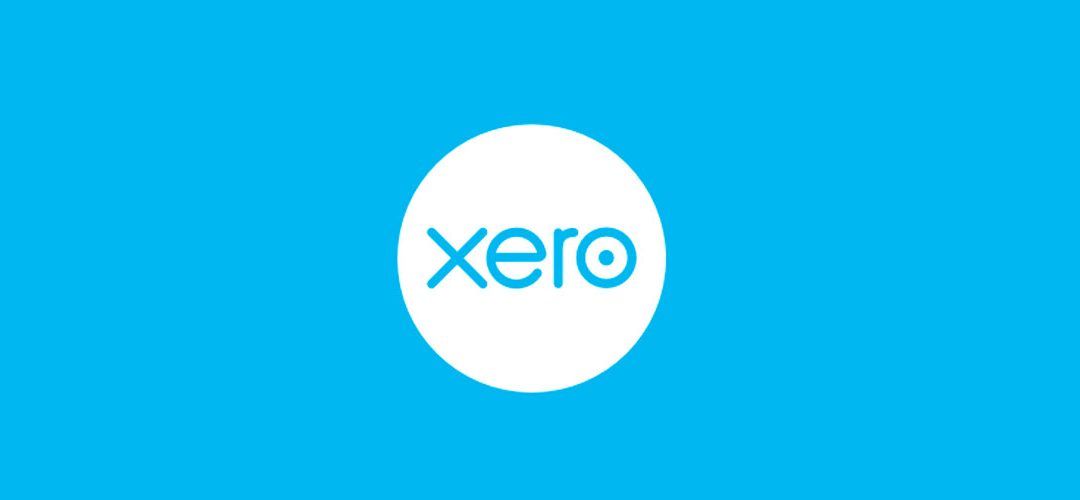Blog

Understanding the Farm Household Allowance (FHA) Support for Farmers Facing Hardship Farming is the backbone of our communities, but even the most resilient families can experience challenging times. From fluctuating markets to rising costs, drought, or simply the day-to-day pressures of running a farm, financial strain is something many farming households will face at some point. That’s where the Farm Household Allowance (FHA) comes in. This government-funded initiative is designed to provide vital financial support and professional assistance to farmers and their partners who are experiencing hardship — helping you not just get through tough times, but plan for a stronger, more sustainable future. What is the Farm Household Allowance? The FHA is a payment available to eligible farmers and their partners. It aims to provide: Financial support : Regular payments to help with essential household expenses. Professional assistance : Access to financial advice and farm improvement programs. Tailored services : Support designed around your unique circumstances. Future planning : A structured plan to improve your farm’s long-term viability and your family’s security. Why Apply? The FHA is more than just financial assistance. It’s about equipping farming families with the tools, advice, and resources to regain control over their financial future. Support includes: Regular payments to meet basic household needs. A farm financial assessment supplement of up to $1,500 to cover the fees of a qualified financial assessor. Guidance to help improve farm profitability and sustainability. Access to programs and services that can make a real difference in planning for the years ahead. Who Can Apply? To qualify for FHA, you must meet the following criteria: Be a farmer, or the partner of a farmer. Be 16 years or older. Contribute significant labour and capital to an Australian farm, or be the partner of someone who does. Have a farm enterprise with a significant commercial purpose or character. Meet income and assets test limits. Have received less than four years of FHA within a specific 10-year period. Income test : Your total income must be below the JobSeeker payment income test cut-off. $1,484 per fortnight for singles $2,745 per fortnight combined for couples Asset test : Your combined personal and farm assets must be below $5.5 million. Mutual Obligation Requirements Recipients of the FHA are required to: Complete a Farm Financial Assessment (FFA) to evaluate the farm’s financial position. Develop and follow a Financial Improvement Agreement , outlining actions to strengthen financial circumstances. The $1,500 supplement is provided to cover the cost of engaging a qualified financial assessor to assist with this process. Frequently Asked Questions Is the FHA only for those affected by drought or natural disasters? No. It’s available to any farming family experiencing financial hardship, regardless of the cause. Can I apply if I have significant assets but limited cash flow? Yes. As long as your combined personal and farm assets are below $5.5 million, you may still be eligible. How long can I receive FHA payments? You can receive FHA for up to four cumulative years within a 10-year period. What can the $1,500 financial supplement be used for? It’s designed to cover the cost of a qualified financial assessor completing the Farm Financial Assessment. How to Apply Getting started is simple. You can: Visit the Farm Household Allowance page on the Services Australia website . Call the Farmer Assistance Hotline on 132 316 (Monday to Friday, 8am–5pm). Or, contact CoggerGurry on (03) 5571 0111 — our team can guide you through the process and provide support tailored to your circumstances. We’re Here to Help At CoggerGurry, we understand the pressures that come with farming life. We’ve worked alongside farming families for decades, helping them navigate financial uncertainty and plan for long-term success. If you think you might be eligible for the Farm Household Allowance — or if you’d simply like to understand more about how it works — please get in touch with our team today. CoggerGurry Chartered Accountants 44 Gray Street, Hamilton VIC 3300 03) 5571 0111 reception@coggergurry.com.au

The Australian government’s promise to cut student loan debts by 20% has now become law. If you’re one of more than three million Australians who have a student loan, you’re probably wondering what this means for you and when you’ll see the benefits. The change applies to all types of student loans, including VET Student Loans, Australian Apprenticeship Support Loans, and even older schemes like the Student Financial Supplement Scheme. If you had an outstanding student loan debt on 1 June 2025, you’re eligible. The reduction is calculated on your debt balance as at that date, before the annual indexation was applied. Even if you’ve made payments since June or completely paid off your loan after that date, you’ll still receive the full 20% reduction based on what you owed on 1 June. If you’ve already paid off your loan since 1 June, the reduction might actually put your ATO account into credit, potentially resulting in a refund to your bank account (as long as you don’t have tax debts owing). If you’d already paid off your student loan completely before 1 June 2025, unfortunately you won’t benefit from the 20% reduction. The relief only applies to debts that existed on that date. The ATO’s responsible for applying the change, and is currently updating its systems to process these reductions. Most people should see their 20% reduction applied before the end of 2025. You don’t need to do anything to receive the reduction – it will be applied automatically. The ATO will notify you when it’s been processed, and you’ll be able to see your new lower balance through your myGov account or the ATO app. Don’t delay lodging your tax return while you wait for your changed loan balance to appear in your MyGov account. There’s no benefit in waiting, and you should continue with your normal tax obligations. Remember to update your bank details with the ATO if you’re expecting a potential refund, and if your loan gets paid off completely, don’t forget to tell your employer to stop withholding additional amounts from your pay. Please contact our office if you have any questions or queries - 03) 5571 0111

We’re excited to share that we’ve upgraded our client signing experience—now powered by FuseSign! This intuitive, secure platform lets you sign documents in minutes (not days), straight from any device, and is simple to use. There’s no need to download apps or remember passwords - just click the link, review your documents, and sign. With industry-leading security and a smooth, hassle-free process, signing important documents has never been faster or easier. You can find out more about FuseSign Here

As part of its re-election commitment, the Federal Government has passed legislation to reduce all outstanding HECS-HELP debts by 20%. The Bill passed the Senate on 31 July 2025 and will come into effect once it receives Royal Assent. The reduction will be applied retrospectively to student loan balances held as at 1 June 2025. While many borrowers have recently seen their loan balances increase due to the 3.2% annual indexation, the Government has confirmed that the 20% discount will be calculated based on the loan amount before indexation was applied. How the Reduction Will Work: Once the legislation is in effect, the Australian Taxation Office (ATO) will automatically apply the 20% reduction to eligible student loan accounts. Indexation will also be recalculated using the reduced loan balance, delivering further relief for borrowers. This change builds on previous reforms that now link indexation to the lower of the Consumer Price Index (CPI) or Wage Price Index (WPI), rather than CPI alone, an approach designed to ease the financial pressure on graduates. Lodging Your Tax Return: If you’re getting ready to lodge your tax return, you don’t need to delay. The ATO will automatically apply the discount in the coming months. If you’ve fully repaid your student loan since 1 June 2025, you may be eligible for a refund equivalent to the 20% discount (subject to any other outstanding tax liabilities). Other Changes to Student Loan Repayments: The legislation also introduces changes to repayment thresholds. From 1 July 2025, the minimum income threshold for compulsory student loan repayments will increase from $54,435 to $67,000, making repayments more equitable. If you have any questions about how these changes may affect you or your tax return, please get in touch with CoggerGurry today, we’re here to help. Tel: 03 5571 0111

Parliament has resumed, and we are watching closely for the introduction of the Division 296 tax Bill to the lower house. While the Government is managing a number of priorities, the extra time provides us with the opportunity to continue planning with clients who may be affected and to ensure we are ready when the legislation is finalised. Although no update has been given on whether the 1 July 2025 start date will be deferred, we’ll keep you informed as soon as there is more clarity. In the meantime, rest assured that we are monitoring developments carefully and will provide guidance and advice as soon as the position becomes clearer.

Effective 1 July 2025, businesses can no longer claim income tax deductions for interest charges imposed by the ATO on unpaid or underpaid tax liabilities. This change applies to general interest charge (GIC) and shortfall interest charge (SIC) amounts incurred in income years starting on or after 1 July 2025. Previously, businesses could deduct ATO-imposed interest charges on overdue tax debts, reducing the net cost of these charges. From 1 July 2025, this deduction is no longer available, meaning any GIC or SIC incurred from this date cannot be claimed as a tax deduction, regardless of when the underlying tax debt arose. For example, if a business incurs GIC on an unpaid income tax liability after 1 July 2025, this interest expense is not deductible in its tax return for the 2025–2026 income year or subsequent years. This legislative change is significant for businesses that manage cash flow by deferring tax payments, as the cost of carrying tax debt will effectively increase. Without the tax deduction, the real cost of ATO interest charges rises, making it more expensive to delay tax payments. The ATO applies GIC on unpaid tax liabilities at a rate that is reviewed quarterly and compounds daily. As of the latest update, the GIC rate is 10.78%. The removal of tax deductibility for ATO interest charges underscores the importance of timely tax compliance. Businesses should act promptly to adjust their financial strategies, ensuring that they are not adversely affected by increased costs associated with overdue tax payments. Please contact our office if you have any questions or queries - 03) 5571 0111

Please note that Xero has recently made changes to their subscription plans with the major change of added Payroll and Superannuation functionality to their Ignite and Grow plans. As we are at the start of a new financial year this may be an appropriate time for you to review your business’s subscription level to ensure you are on the most suited plan for your business needs. If you have any questions, feel free to contact us to discuss your software needs. 03)5571 0111








